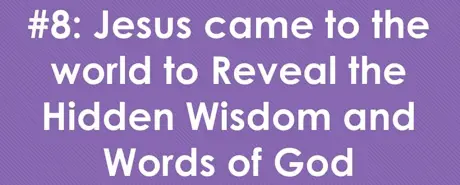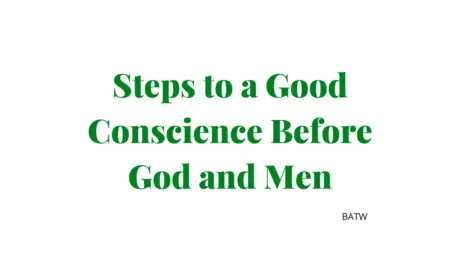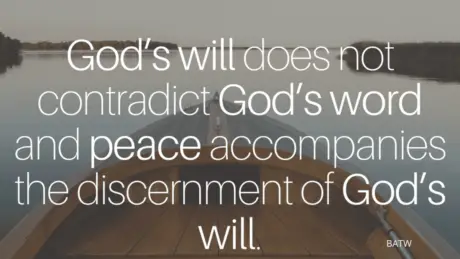Can the Children of the Bride-Chamber Fast When I’m With Them?
“Then came to him the disciples of John, saying, Why do we and the Pharisees fast oft, but thy disciples fast not?” (Matthew 9:14).
Above, the question John’s disciples asked Jesus is not addressing fast-duration or fast-frequency, but fast-time: when to fast? They were comparing their reason for fasting frequently versus his disciples’ lack of fasting.
Jesus in turn, changed their focus. He, instead of answering their question, provides not a reason, but a time. Then, he answers the question: “When should Christians fast?” At a later time, he will explain the most powerful motive for them to fast.
Jesus is the first person, I know of, who responds to a question with another question.
His response and question: “Can the children of the bride-chamber mourn, as long as the bridegroom is with them?” (Matthew 9:15).
Table of Content
- Can the Children of the Bride-Chamber Fast When I’m With Them?
- Who are the Children of the Bride-Chamber?
- Is Jesus the Bridegroom?
- Two Other Scriptures Affirm This
- Jesus Makes it Personal
- How Will Jesus be Taken?
- The Promise
- Jesus Utilizes the Known to Teach the Unknown
- Get the Spiritual First
- The Days Will Come When They Will Fast
Who are the Children of the Bride-Chamber?
Above, Jesus is using a simple, familiar, and popular real-life event to answer John’s disciples. First, Jesus’ reply is purely natural or physical, then it’s spiritual or heavenly.
Naturally, these people are very familiar with marriages and the marriage scenario; therefore, he knows they could understand and relate to it.
This marriage example has no association with “the Bride of Christ”.
If we remove these scriptures from their natural contextual occurrence, then the result is chaos and confusion.
For example, I’m aware that many Believers shall say, Jesus Christ, is the “bridegroom”. However, the scriptures above did not say that he is the bridegroom.
Is Jesus the Bridegroom?
Similarly, none of the scriptures above mentions the Church. If Jesus is the bridegroom, then who is the bride?
Certainly, not the Church, for he says they are“the children of the bride-chamber”, (Matthew 9:15; Mark 2:19 and Luke 5:34). None of these scriptures mentions a bride.
This is just an everyday example that the people understand. And one that Jesus utilizes, to teach them at what time Believers fast.
Here Jesus defines fasting as mourning. He by asking, “Can the children of the bride-chamber mourn?”
In essence, he is saying as long as the bridegroom is present (any bridegroom), the people connected to his marriage are happy and celebrating.
Two More Scriptures affirm: When Should Christians Fast?
Two other scriptures, dealing with the identical topic: When should Christians fast, also affirm that a Christian fast is a time to mourn, they are Mark 2:19 and Luke 5:34?
According to Apostle Mark, Jesus asks, “…Can the children of the bride-chamber fast, while the bridegroom is with them?….” (Mark 2:19).
Then, according to Apostle Luke, Jesus inquires,“…Can ye make the children of the bride-chamber fast, while the bridegroom is with them?”…., (Luke 5:34).
Both Mark’s and Luke’s accounts of this incident are identical. But they differ from Matthew’s by one word: “mourn” (Matthew 9:15).
Seeing that there are no contradictions in the Bible, then we could justly conclude that both are supporting Jesus’ definition of a fast as a time to mourn.

Jesus Makes it Personal
On the other hand, let’s examine the spiritual aspect of this scenario.
So spiritually speaking, since the disciples of John asked Jesus the question directly, his response changed everything. Before, Jesus was speaking of any bridegroom, but now, he makes it personal.
Therefore, when he says:
“[B]ut the days will come, when the bridegroom shall be taken from them, and then shall they fast”, (Matthew 9:15; Mark 2:19 & Luke 5:34).
He makes himself the bridegroom.
However, Jesus tells them “when”, (not if), but “when” he is “taken” by force or circumstance, then they would “mourn” or “fast”.
Jesus tells them, that right now the bridegroom is with them and they have no need to fast or mourn. But a day is coming when he will be “taken” from them, then they will fast, but not before.
Therefore, above, when Jesus says “them” and “they” he refers to his disciples.
And simultaneously, he changes the event, for it’s no longer a wedding, but a departure. Goodbye!
How Will Jesus be Taken?
Will he be taken by death, or taken up into heaven, or just removed from the presence of his disciples?
We know that later, after this conversation with John’s disciples, he will be crucified. So, he shall be taken by death.
And we are also aware that much later, he will be taken into heaven, (Acts 1:2, 9, 11 & 22).
However, it’s not his ascension into heaven that will motivate Jesus’ disciples to “mourn” but his death. His death is sad.
But his ascension is joyful, for by it we have hope of eternal life.
Subsequently, he reveals, that when he is removed from his disciples “then shall they fast”. He was equating fasting with mourning.
And simultaneously, he was informing them at what time his disciples will fast or mourn.
The Promise
Consequently, Jesus makes a promise. To ensure the happiness of his followers, he vows to send another Comforter in his absence (John 14:16).
However, before the Comforter could arrive Jesus had to leave (John 16:7). This is good news. This is happy news. He will never leave them comfortless, but he shall remain with them forever.
Jesus reassured his disciples.
“Nevertheless I tell you the truth; It is expedient for you that I go away: for if I go not away, the Comforter will not come unto you; but if I depart, I will send him unto you”, (John 16:7).
The Comforter first came on the Day of Pentecost. However, He comes again every time a Believer receives the Holy Spirit.
Jesus Utilizes the Known to Teach the Unknown
Christ tells the followers of John about a future spiritual event. He uses a natural event they know and comprehend to explain one they didn’t.
And he utilizes a natural marriage and the accompanying merry-makers to explain a spiritual and opposite event. His death and resurrection.
Therefore, Jesus was informing John’s disciples that his followers will fast when he dies and ascends into heaven. This is consistent with scriptures, for many Bible characters fast when someone dies.
Nevertheless, in these scriptures, the church is still the people who make merry with the man getting married. She is not the bride. Jesus addresses two different issues in one statement. And he does this very frequently.
Get the Spiritual First
A distinction is always necessary between the physical and the spiritual application of any scripture. Assigning the physical meaning to the spiritual, in any case, breeds confusion.
Conversely, assigning spiritual principles to natural things is equal unfruitful. Only compare spiritual with spiritual, (1 Corinthians 2:13).
Understanding the spiritual aspects of scriptures always provide added depth and reveals hidden truths and they enrich our lives
The Days Will Come When They Will Fast – These Days Are Here
Finally, the advent of the Comforter (Holy Ghost) is our source of tremendous joy and happiness. Now we don’t mourn because Jesus is gone, for the Holy Ghost lives in and comforts us.
Consequently, note in the Bible that although Jesus fasted while he was here, none of his disciples did. They only fasted after he was “taken” from them, just as he said they would.
Similarly, we do fast because he was taken. He’s no longer physically with us. If he were, we wouldn’t need the Comforter.
What do you think: When should Christians fast? And when do you fast?
Never miss a post in this series. Sign up below for follow-up posts. Provide your email address to receive updates in your inbox.


